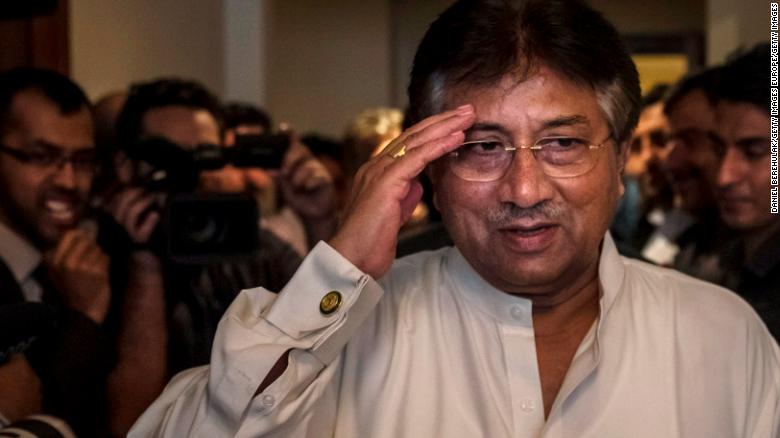
On 26th November, the country was in the hold of a high-stakes courtroom drama as the Supreme Court took up a petition against General Bajwa’s extension. Chief Justice Asif Khosa suspended the extension order on the basis of procedural lapses, and the fact there is no provision in the Army Regulations under which an extension of tenure can be granted.
After three days of high drama, the Supreme Court, on Thursday, rejecting all notifications and summaries, allowed the incumbent Army Chief to continue in his office for six months conditionally. The order left the matter to parliament and the federal government “to clearly specify the terms and conditions of service of the COAS through an act of parliament and to clarify the scope of Article 243 of the constitution under which the government appointed Gen Bajwa”. The basis for the court’s order was expressed to be “judicial restraint.”
Following this imbroglio, the PM’s tweets blaming foreign enemies and domestic mafia were dumbfounding because eventually the government will need to build consensus on this issue and bring opposition on board.
The PTI government is chiefly to blame for turning a simple issue into such a big controversy by not following the due procedure and relevant rules. The government was unable to draft a notification that could withstand judicial scrutiny. Committing blunder after blunder, the incompetence of the legal team caused a national fiasco and humiliation for the party.
The Chief of Army Staff was due to retire on November 29, 2019. The PM had earlier disclosed in an interview that he had decided to give General Bajwa an extension just a few days after assuming office and wanted him to serve for another three years.
Interestingly, when the CJCSC was nominated On Nov 21, an official statement confirmed that an extension of three years was granted to Gen Bajwa on grounds of the regional security situation.
The notification was signed by the PM Imran Khan regardless of the fact that the appointment notification, as per procedure, has to be sent to the President after the PM and cabinet’s approval and then signed and issued after the President’s approval.
On 11th September, the President Arif Alvi said in an interview with Asma Sherazi that he had not signed the notification of extension and would sign it on the PM’s advice. However, in an interview with Mehr Bukhari on 13th November, he said that he had signed the extension summary but had forgotten that he did.
The government’s idiosyncrasies, procedural anomalies and clerical gaffes resulted in such a shambolic situation. The legal and procedural lacunae and flaws in the summaries presented by the legal team created an embarrassing situation for the country and its dignified institutions all over the world. Expressing his indignation, Justice Khosa said, “You have turned the army chief into a shuttlecock.”
On 16th December, the Supreme Court’s released the eagerly awaited detailed judgement on the issue of giving an extension to Chief of Army Staff General Qamar Javed Bajwa. The verdict stated that the matter is being referred to the Parliament to carry out legislation.
“It is now for the people of Pakistan and their chosen representatives in the Parliament to come up with a law that will provide certainty and predictability to the post of COAS, remembering that in strengthening institutions, nations prosper.”
The SC in its verdict also wrote that there are no rules in the constitution as far as extensions of tenure and retirement age for the rank of general is concerned. The verdict stated that there is no provision in the law to extend the army chief’s tenure by three years and that General Bajwa will retire if the Parliament failed to legislate over the issue.
The entire episode raised some very important questions. Why was the government’s explanation filled with mistakes and inconsistencies? Why did the government not follow a proper consultative procedural mechanism? Why was General Bajwa given a six month extension by the court when there is no provision pertaining to the extension in the sub-article of the constitution? How can the six months extension be validated if not the extension of three years?
Why was “judicial restraint” exercised by the court and why this “restraint” was not shown when elected Prime Ministers were either disqualified, imprisoned or sent to gallows?
The new summary was formulated in the emergency meeting of the cabinet. This raised question as to why it was necessary for General Bajwa to be present in the meeting to oversee cabinet proceedings. Justice Khosa even remarked, “It is embarrassing that the Army Chief has to keep an eye on summaries instead of the country’s defence.”
Keeping in view the objection by the court, the word ‘appointment’ was exchanged with ‘extension’ in the new summary.
The ball is now in parliament’s court. The government will need consensus on this issue and will have to work with the opposition to frame the legal process pertaining to army chief’s extension.
Appointments to significant positions should be regulated by the law for the sake of institutional integrity, the rule of law, supremacy of the constitution and larger interests of the country.
It was the first time in the history of the country that the issue of the army chief’s extension was challenged in a court of law and he was told that he may remain chief but only on ad hoc basis. The day after the detailed verdict regarding the extension was issued the former military dictator Musharraf was sentenced to death sentence in high treason case under Article 6 of the Constitution. For the first time in the history a military chief has been declared guilty of high treason and handed a death sentence. Thus, the symbolic significance of both the verdicts is immense.
